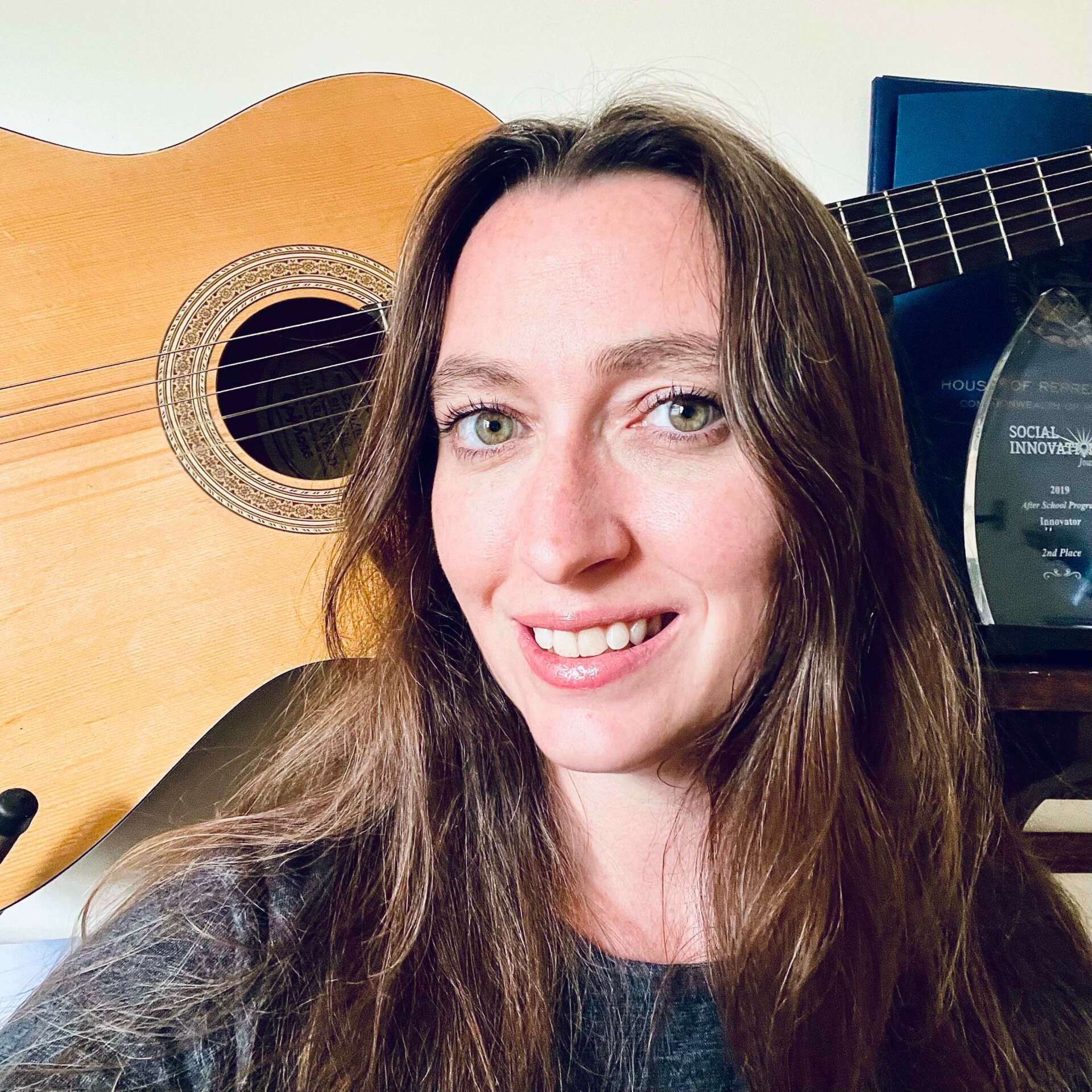We’re excited to introduce you to the always interesting and insightful Jessica Craft. We hope you’ll enjoy our conversation with Jessica below.
Jessica, thanks for taking the time to share your stories with us today So let’s jump to your mission – what’s the backstory behind how you developed the mission that drives your brand?
I grew up in a lower-income family and struggled to connect with peers due to having ADHD and other social issues. There were many times I felt unconnected and wanted to drop out of school. One of the only reasons I attended school and felt a sense of belonging was because I had access to music programming through my school system. I was a dedicated member of the drumline, orchestra, concert band, and wind ensemble. Music helped me connect with others without having to speak, provided joy during the school day, and provided a safe place outside of school to stay out of trouble. It gave me something to be proud to be a part of. After high school, I found community connection through joining original bands and was able to express myself through original songwriting.
After college, I worked in corporate finance and studied for my series 7 brokerage exam. I also volunteered with Big Brother Big Sister and other youth community groups and realized that most children and teens lacked access to arts and music, and struggled significantly with poverty and education inequities. From my own personal experiences, I knew the power of music to provide connection, build confidence, and to motivate teens to create and achieve their dreams. I left my job to start Rock to the Future as a volunteer organization and work numerous side gigs to pay my bills while launching the organization with (my now husband) Josh Craft. We started with 13 teens in Kensington, and over 13 years have grown to serve more than 1,100 children, teens, and young people annually with consistent, high-quality music programming.
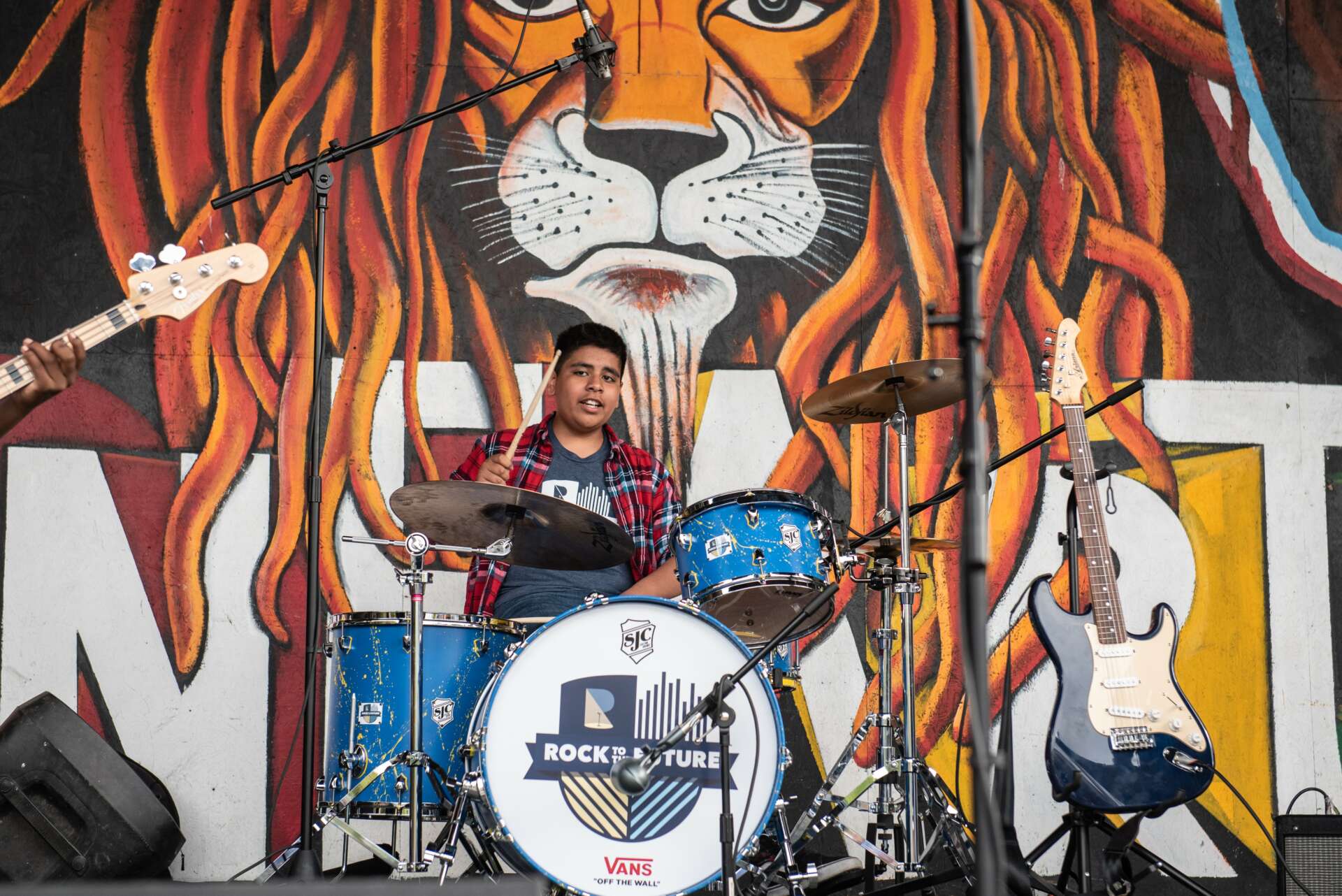
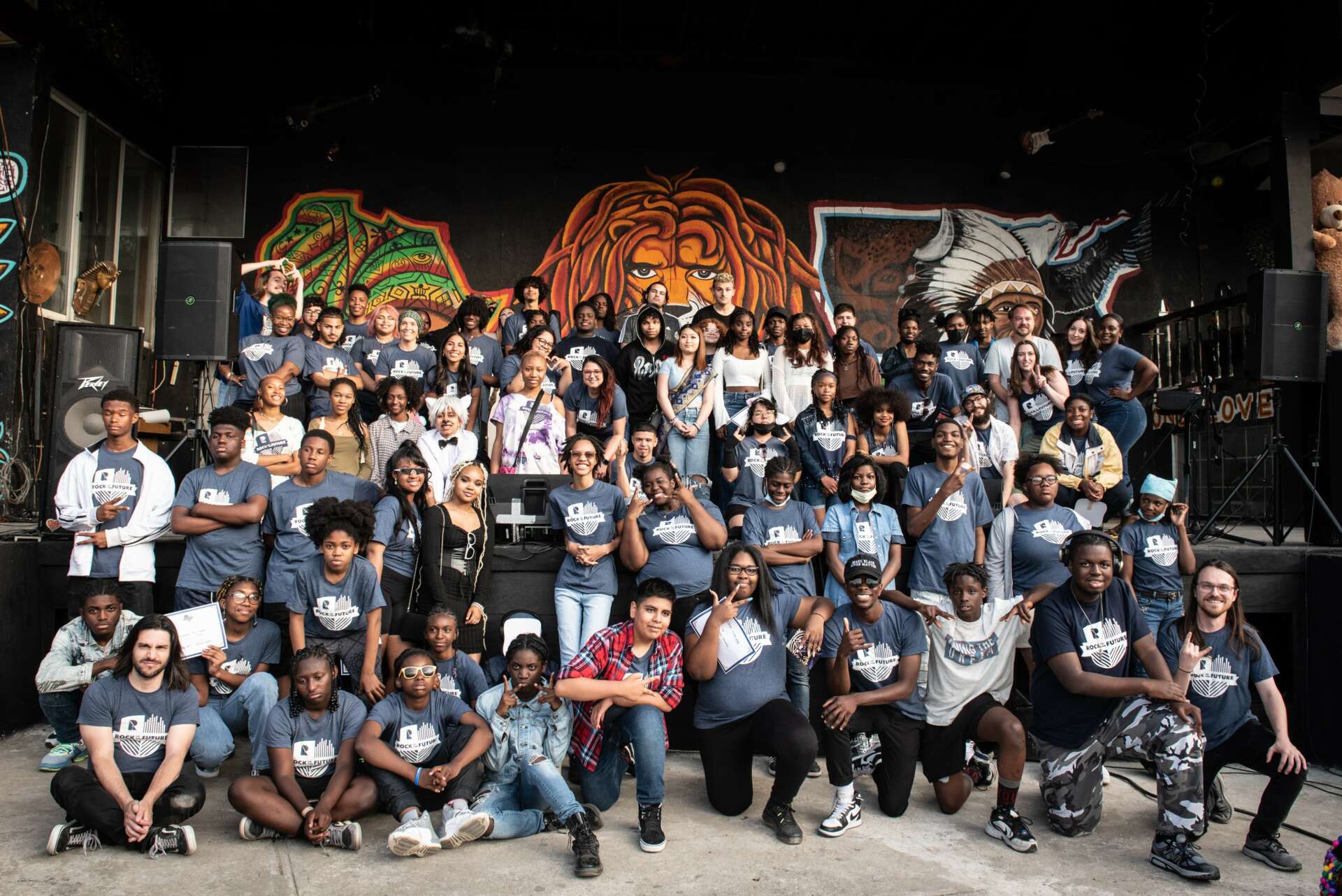
Jessica, before we move on to more of these sorts of questions, can you take some time to bring our readers up to speed on you and what you do?
Music is transformative. It can nurture essential life skills that help youth heal from trauma, graduate from school, pursue professional careers, foster healthy relationships, and build the self-efficacy to achieve their dreams. Yet, many young individuals in Philadelphia are denied access to these life-changing opportunities due to budget constraints and income disparities.
Rock to the Future supports positive youth development and economic empowerment through free, student-driven music programs for Philadelphia youth in under-resourced areas. We provide consistent, high-quality, trauma-informed music programs for more than a thousand youth annually in-school, after school, and during the summer in schools, community locations, and the juvenile justice system.
Through our programs, talented and eager children, teens, and young people build confidence, positive relationships, and community connection, which supports mental well-being, staying in school and pursuing professional pathways, and peaceful communities. Through the bridge of music, we also provide direct college and trade readiness support, mentoring, and connection to resources. Rock to the Future also works directly with youth in incarceration and diversion and supports the re-entry process. We’re also the only music provider in the city that provides intergenerational programming for youth to learn music with a trusted adult in their lives. We envision that all youth in Philadelphia will have access to the life-changing benefits of our transformative music programs.
“I was a very shy person in the beginning of joining Rock to the Future, but I never felt out of place. I always felt included, but I always found talking to people was a problem for myself. I built the courage and auditioned for one of the lead drummers of the Student Ambassador Band. Joining this band gave me some insight into the responsibility and motivation to attend practices, being on time, and learning music material. I saw this as something simple because I was just playing music, but this was very important to life being on time, practicing what you need to do, listening and connecting.
This program showed me how to just be out there, be determined, be eager, and be hungry enough to get to a point in life where you fit in your eyes. But it’s also a very professional environment. We have days where we will have a workshop where we learn about different colleges, scholarships ways to get those scholarships. Ways to get into a career. These opportunities gave me pathways to look at giving me a clear thought of where I want to be. The staff, the students they are all a foundation to build what RTTF has going on. This also reflects back on me, everyone has a target and that’s bettering ourselves and our community and I am very thankful to have this community this group of people to be with every week, to connect with and build with is something I am driven and activated by. Thank you Rock to the Future” – Jymeer, Rock to the Future student
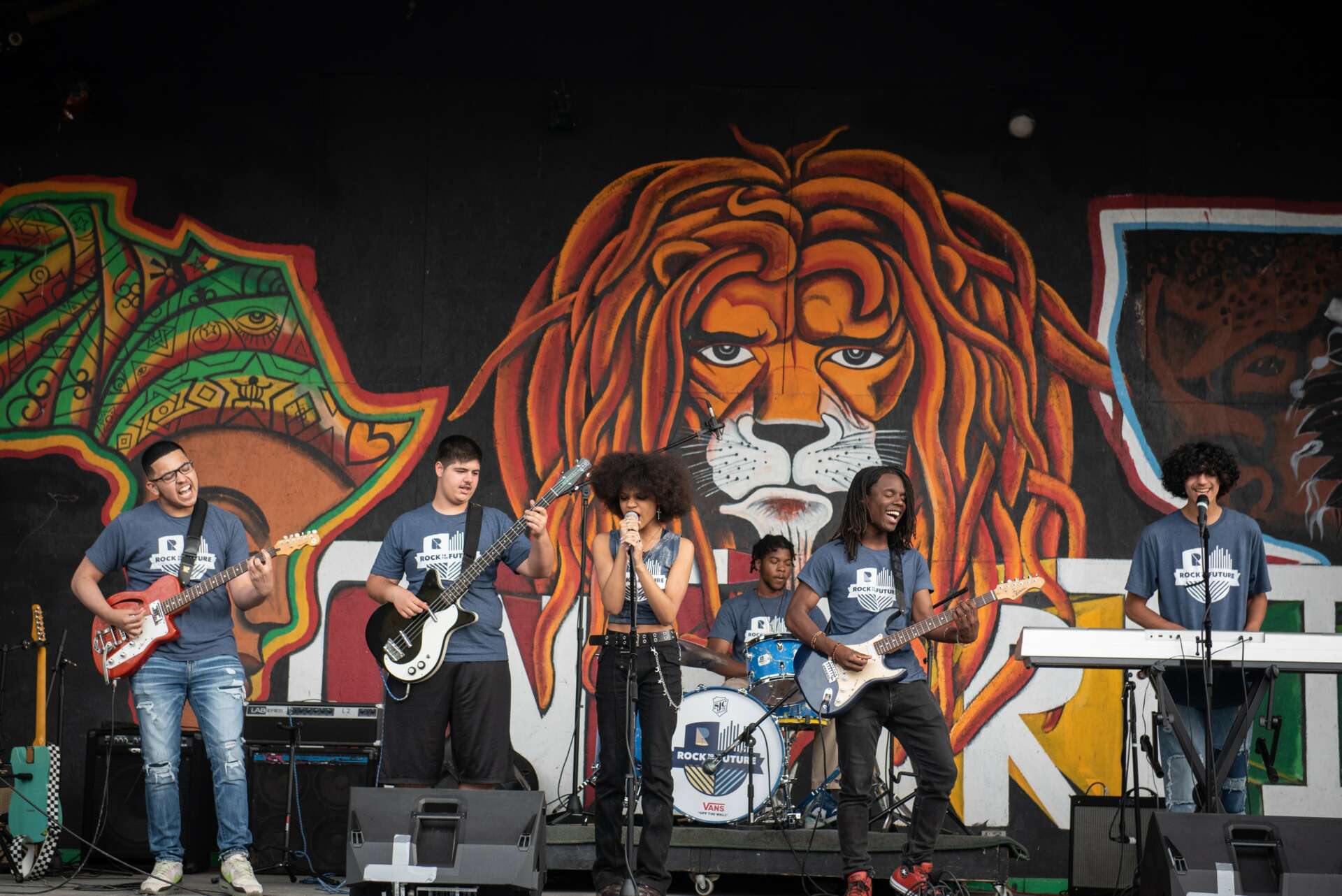
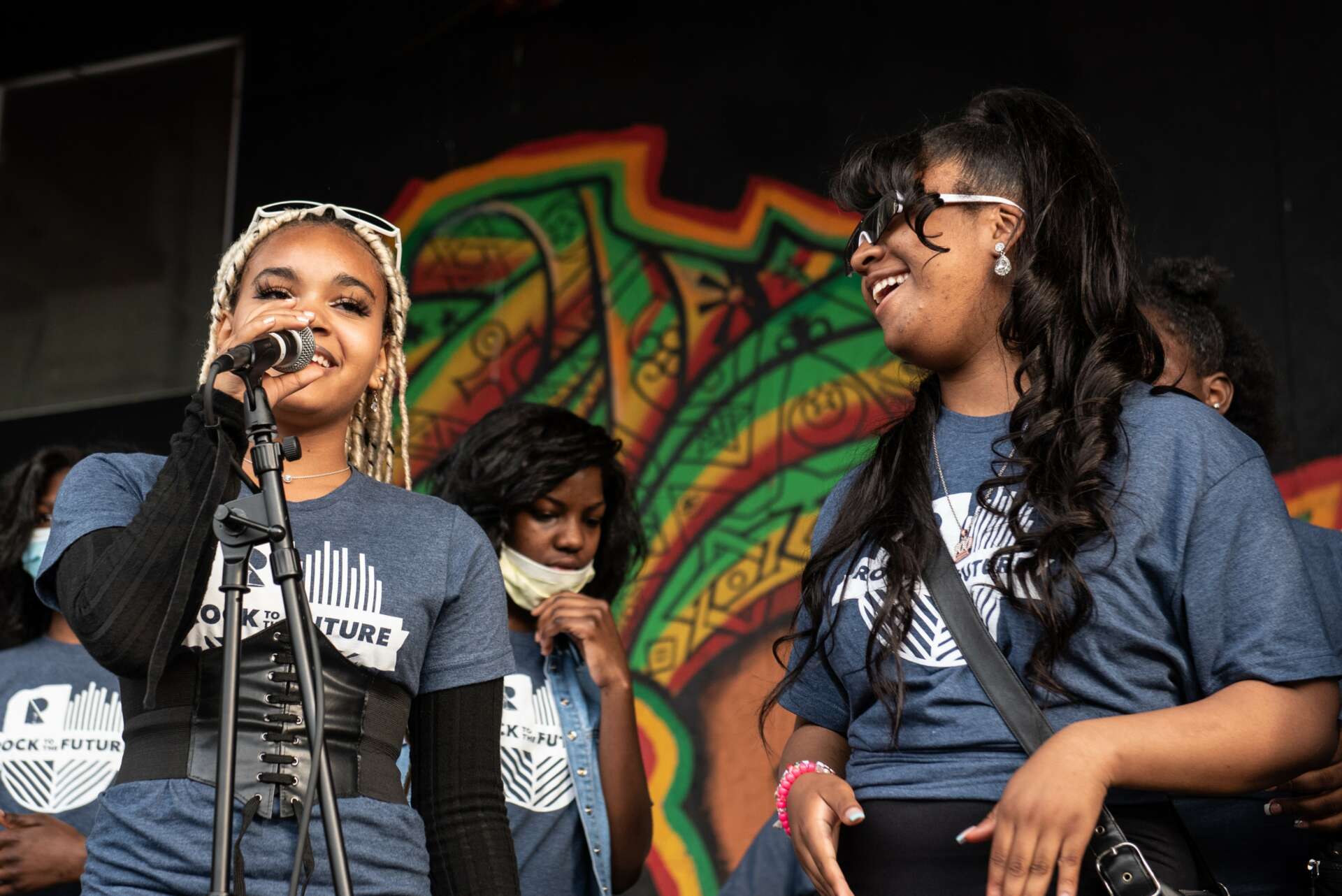
Let’s talk about resilience next – do you have a story you can share with us?
For the first two years of Rock to the Future, my boyfriend (now husband) Josh and myself volunteered while working side gigs as caterers, brand ambassadors, and other odd jobs. Josh’s background is music instruction, and mine is business administration, and we both used our skills to develop and grow the organization. My grandmother left me a couple thousand dollars when she passed away, which I used to purchase a fixer-upper in Philadelphia and rented out two of the rooms to pay for the mortgage. We shopped at the dollar store and thrift stores, and had roommates until our early 30s in order to build Rock to the Future into a sustainable nonprofit organization.
We knew from the first year of operating how impactful this organization was, as youth kept coming back each day, parents tearfully expressed their gratitude for these opportunities for their children, and waiting lists for programs grew. It was a challenge having to learn how to fundraise, learning the best youth development strategies (like trauma-informed care and restorative practices and leading with youth-voice), and non-profit administration. We now have 13 full-time employees and 5 part-time (with 3 being alumni students), serve 1,100+ youth each year, have a budget of more than a million dollars, and continue to have waiting lists for our programs.

Can you talk to us about how your funded your business?
The initial seed-funding for Rock to the Future was a $15,000 grant from Women for Social Innovation. I had never applied for a grant before, and found out later that my project wasn’t initially a finalist but they decided to bring me in for a presentation anyway. I credit my business degree from Temple University with helping me learn the skills needed to develop a persuasive business presentation, and I won the $15,000 which essentially paid our rent and basic supply costs for the first year. I wrote additional grants, and our budget doubled to $30,000 in the second year — at which point we weren’t sure how to sustain the business and were nearly out of funds.
From my connections in the financial services industry, I was given the opportunity to present to a company that held an annual charitable golf outing. I was able to demonstrate how their investment in our organization would help us serve the community and grow our services — and secured the partnership for a contribution of $216,000. We developed a 3 year strategic plan, and gradually continued to raise more money and expand and deepen our programs.
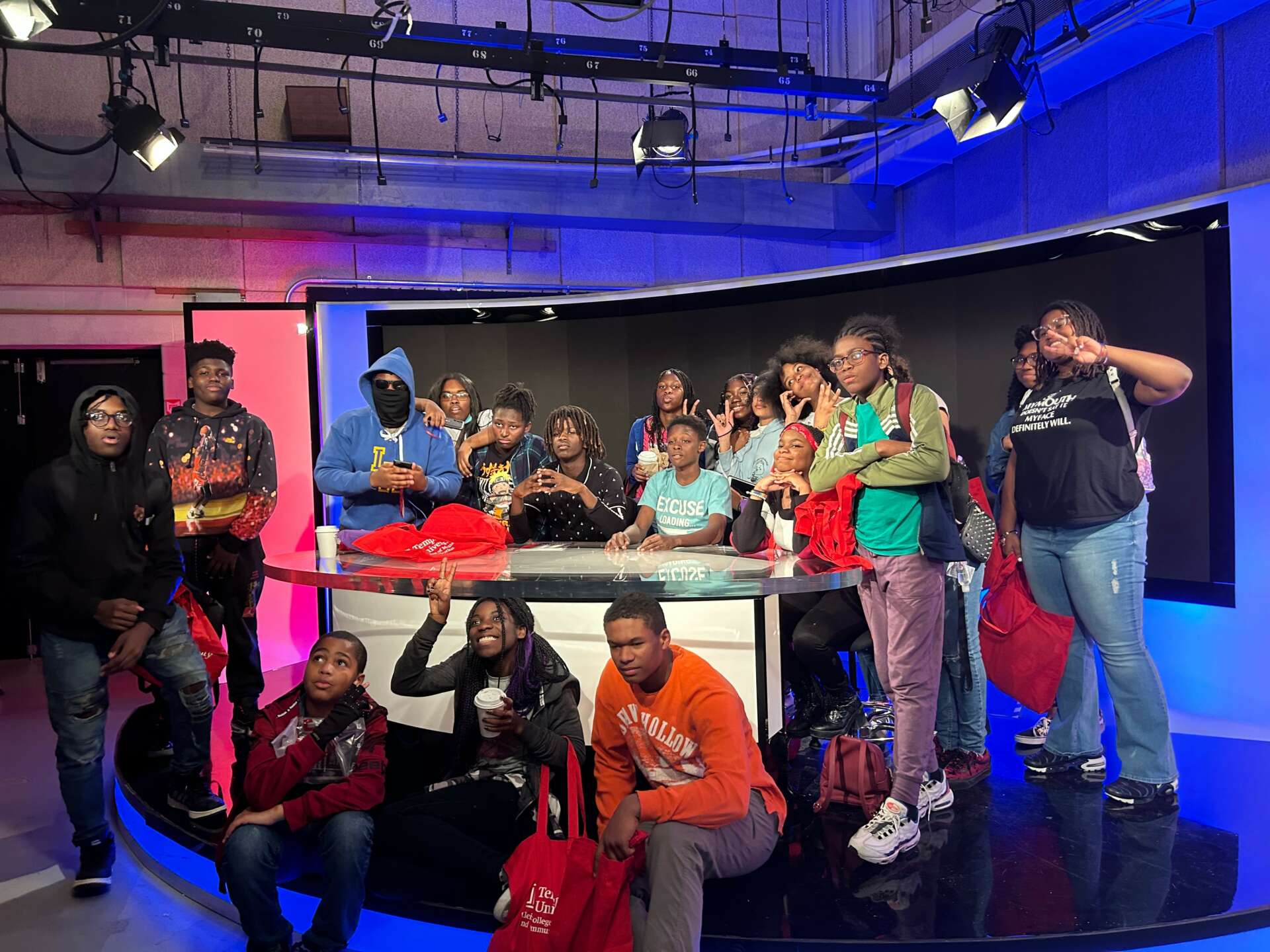
Contact Info:
- Website: RocktotheFuture.org
- Instagram: Instagram.com/Rock2Future
- Facebook: Facebook.com/Rock2Future
- Linkedin: https://www.linkedin.com/company/2351596/
- Youtube: YouTube.com/Rock2Future


